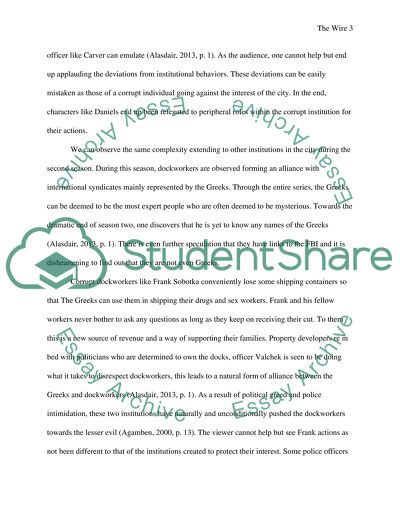Cite this document
(“Research esssay on the wire and its interpretation of corrupt Essay”, n.d.)
Research esssay on the wire and its interpretation of corrupt Essay. Retrieved from https://studentshare.org/visual-arts-film-studies/1497068-research-esssay-on-the-wire-and-its-interpretation
Research esssay on the wire and its interpretation of corrupt Essay. Retrieved from https://studentshare.org/visual-arts-film-studies/1497068-research-esssay-on-the-wire-and-its-interpretation
(Research Esssay on the Wire and Its Interpretation of Corrupt Essay)
Research Esssay on the Wire and Its Interpretation of Corrupt Essay. https://studentshare.org/visual-arts-film-studies/1497068-research-esssay-on-the-wire-and-its-interpretation.
Research Esssay on the Wire and Its Interpretation of Corrupt Essay. https://studentshare.org/visual-arts-film-studies/1497068-research-esssay-on-the-wire-and-its-interpretation.
“Research Esssay on the Wire and Its Interpretation of Corrupt Essay”, n.d. https://studentshare.org/visual-arts-film-studies/1497068-research-esssay-on-the-wire-and-its-interpretation.


